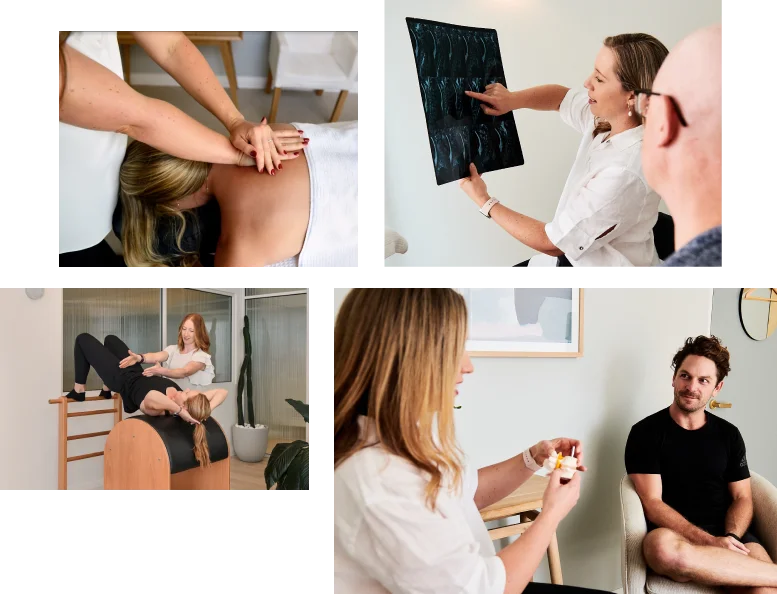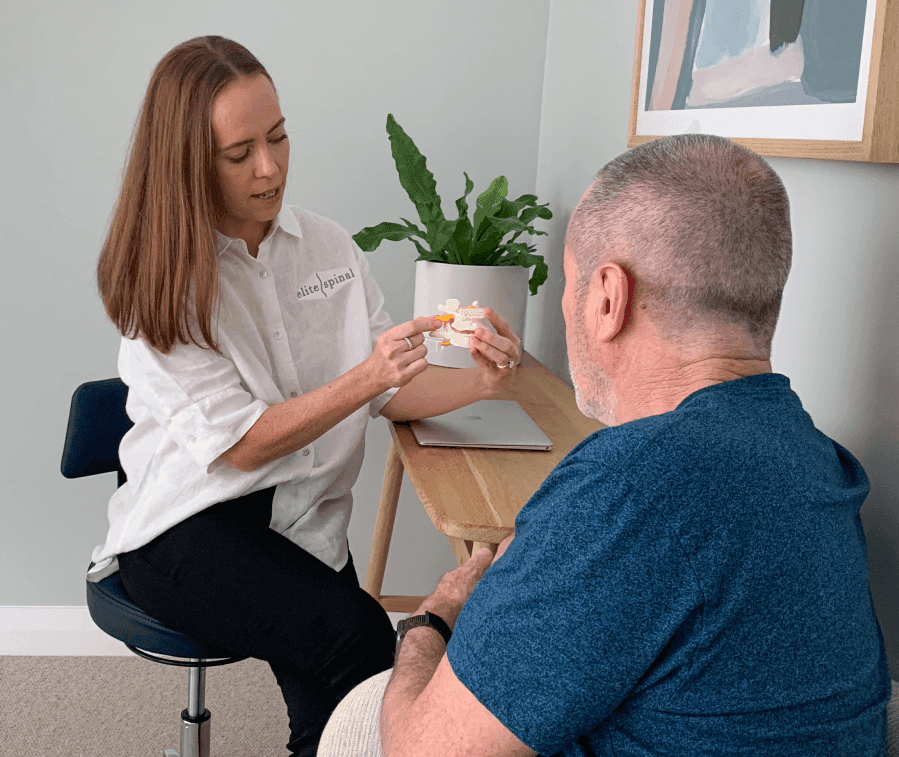Degenerative Disc Disease
Degenerative disc disease refers to the process of degeneration of an intervertebral disc.
Your intervertebral discs are the fluid filled sacks, which lie in between each vertebrae and act as the shock absorbers for your spine. They are made up of two parts: Inner nucleus pulposes and outer annulus fibrosis.
The annulus fibrosis is made up of dense fibrocartilage rings and encases the nucleus. The outer ring of the annulus is innervated, meaning there is a nerve supply and can be painful when damaged. The nucleus is the inner part of the disc, which is jelly like in consistence. It changes shape as it adapts to the different loads placed on the disc.
A healthy disc is fluid filled. Breakdown of a disc begins when it becomes dehydrated or loses part of its fluid content. This can initiate a cascade of events, which leads to eventual breakdown, and degeneration of the spinal complex.
Disc degeneration can lead to:
Disc degeneration is a normal part of the ageing process. It is important to note that you can have disc breakdown with the absence of pain. The good news is there is lots you can do yourself to rehydrate your discs and slow the degenerative process down.

Our dedicated Physiotherapy team have a passion for helping our patients. With a deep understanding of the complexities of spinal health, they are highly skilled and experienced in treating spines and spine-related disorders. Our empathetic and professional team are here to listen and to provide best practice clinical care, tailored to your individual needs.
What is the cause?
Disc degeneration is a normal part of the ageing process however there are certain things that can accelerate the degenerative process.
Risk factors include:
- Sedentary lifestyle
- Overweight
- Poor core stability
- Repetitive heavy manual labour
Signs & Symptoms
- Persistent pain at the bottom of the spine
- Pain when sitting
- Pain going from sitting to standing
What can we do about it?
Your physiotherapist will first identify the abnormalities in movement of your spine and will then determine the cause of this.
Core stability training will form a large part of your rehabilitation and prevention of further episodes of back pain.
Movement is the key to rehydrating discs and encouraging repair. Your physiotherapist will provide you with an individualised exercise program to help enable the healing process.
If you are looking for expert Physiotherapy Treatment or Physio group exercise classes, please make a booking or call us
Why Choose Elite Spinal
Come and experience the Elite Spinal difference!


Not your typical Physiotherapy Clinic
Modern Facilities
Hands-on approach
highest level of care
non-invasive treatment
commitment to recovery
trust & communication
Book an Appointment
If you are looking for Expert Physiotherapy Treatment or Physio Group Exercise classes, please make a booking or call us.
On-the-spot rebates for Medicare and Private Health Insurance are available*
Need to get in touch? Make an Enquiry


